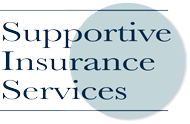 The world we live in today offers opportunities for adjusters to work in many states, and it is not uncommon for adjusters to hold non-resident adjuster license in every state that requires adjuster licensing.
The world we live in today offers opportunities for adjusters to work in many states, and it is not uncommon for adjusters to hold non-resident adjuster license in every state that requires adjuster licensing.
If your resident state offers an adjuster license, you most likely will have to take a pre-licensing course and pass an examination. Once you have passed the examination, you’ll need to complete the application and any other license requirements (fingerprints, bonds, etc.) and pay the state license fee before your license is issued.
When your home state doesn’t issue an adjuster license
If your resident state doesn’t issue adjuster licenses—and you want to be licensed in multiple states—that is when the plot thickens. Since your state does not issue adjuster licenses, you will first need to get a license in a state that does offer non-resident adjuster licenses.
The first step is selecting a designated home state (DHS). A DHS is a non-resident state that will qualify an adjuster for licensing purposes and allow the adjuster to designate the non-resident state as their “home state.” The non-resident adjuster license is required to complete resident licensing requirements in the state they select. Other non-resident states will use the DHS license to qualify the adjuster to obtain non-resident adjuster licenses.
Do you really need a non-resident license in a state other than your DHS if you’re going to adjudicate claims in those states? Doesn’t your license in your home state count?
The answer to this question assumes the state in which you want to adjudicate claims requires a license. But if it does, then yes, you will need to obtain a license in that state. Once you have determined the states in which you need to obtain non-resident licensing, you will need to check the state insurance department website for state-specific requirements.
What is required for a non-resident adjuster license
In some states, completing the application and paying a fee is all that is required for a non-resident adjuster license. However, other states require the adjuster to pass a state-specific examination before the non-resident adjuster license will be issued. Some states, like California and New York, require all licensees to pass an examination, regardless of having passed an examination in another state. Other non-resident license requirements may include bonds, fingerprints, and E&O coverage.
If you have any further questions regarding non-resident adjuster licensing, feel free to contact us for all your adjuster license and non resident insurance agent license needs. Supportive Insurance Services specialize in taking the headache out of insurance licensing for insurance agents, agencies, adjusters and insurance companies.
Our clients range from one-person operations to insurance companies with thousands of licenses and appointments throughout the US. Whether you are looking to expand into new markets or just need help managing your current insurance licenses, we can provide you with cost-effective, efficient service.
The insurance licensing information provided on this blog is not legal advice and the reader is advised to consult an attorney for questions regarding the legal ramifications of this information.
